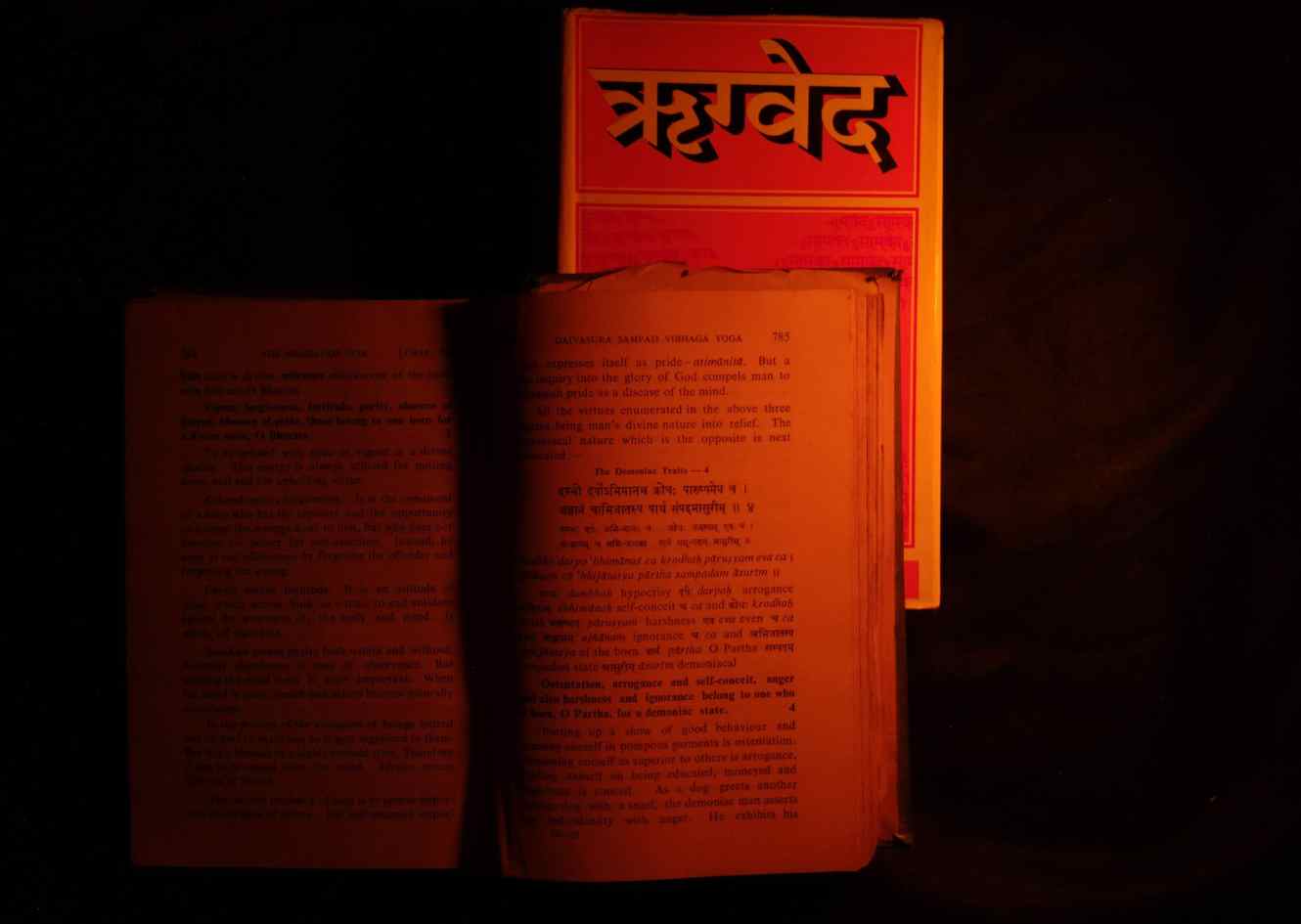Rigveda Is The World’s Oldest Extant Scripture

The Rigveda is the oldest of the four Vedas, ancient sacred texts that form the bedrock of Indian spirituality and philosophy. Composed in Sanskrit over 3,000 years ago, the Rigveda is a collection of over 1,000 hymns (suktas) dedicated to various deities, natural forces, and celestial phenomena.
The term “Rigveda” is derived from two Sanskrit words: “Ṛc,” which means ‘praise’ or ‘verse,’ and “Veda,” signifying ‘knowledge.’ Thus, it can be translated as “The Knowledge of Verses” or “The Veda of Praise.”
The Rigveda is a compilation of hymns known as “Suktas” or “Riks.” These hymns are dedicated to various deities, natural forces, and celestial bodies. The entire collection is organized into ten books or “Mandalas,” with each Mandala containing a specific number of hymns. The Rigveda comprises over a thousand hymns and about ten thousand verses.
Though the exact dating of the Rigveda remains a topic of academic debate, it’s generally believed to have been composed over several centuries, spanning roughly 1500 BCE to 1200 BCE. That makes it one of the world’s oldest extant literary works.
Deities and Themes of Rigveda
The hymns of the Rigveda predominantly praise a pantheon of gods and goddesses, representing cosmic and natural phenomena. Some of the prominent deities include:
- Agni (Fire): The divine messenger and acceptor of sacrifices.
- Indra: The warrior god and slayer of Vritra, often associated with thunderstorms and rain.
- Varuna: The overseer of cosmic order (rita) and guardian of moral laws.
- Soma: Both a god and a ritual drink, associated with ecstatic experiences during rituals.
- Ushas (Dawn): Celebrated as the harbinger of light and new beginnings.
Among these, Indra and Agni have the most hymns dedicated to them. However, apart from deities, this oldest veda also delves into themes like the universe’s origin (the famous Nasadiya Sukta or Creation Hymn), the nature of existence, and the eternal quest for knowledge.
The language of the Rigveda is an ancient form of Sanskrit known as Vedic Sanskrit. The hymns are composed using intricate meters, with the Gayatri meter being the most prevalent. The verses are replete with poetic imagery, allegory, and profound symbolism.
It is more than just a collection of hymns. It offers a glimpse into early Vedic civilization’s spiritual, philosophical, and social fabric. The hymns provide insights into the people’s rituals, ceremonies, and daily life, making them a valuable resource for understanding ancient Indian history and culture.
Furthermore, it lays the foundation for subsequent Indian spiritual thought, with its ideas resonating in later texts, traditions, and philosophical schools.
With its profound spiritual insights and poetic grandeur, the Rigveda stands as a beacon of India’s ancient wisdom. It remains a testament to humanity’s eternal quest to understand the cosmos, the divine, and the self.
